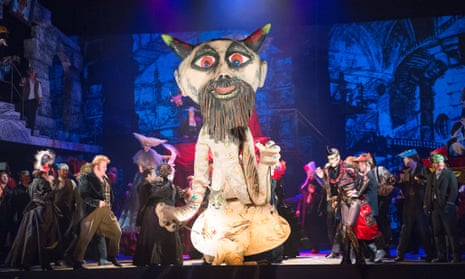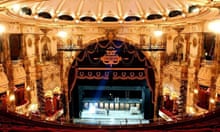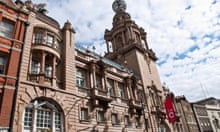The travails at English National Opera have an eerily familiar ring to anyone who has followed its fortunes for long. In late January the chair, Martyn Rose, resigned abruptly, as did the recently appointed executive director Henriette Götz.
Soon afterwards a letter from Rose to Vernon Ellis, ENO’s president, was leaked, revealing the extent of internal feuding. Rose had demanded that the artistic director John Berry leave, “preferably soon”, stating that on Berry’s watch £10m had been lost (this is disputed vigorously by ENO’s spokesman). In a him-or-us ultimatum, the board chose Berry. It is just over a decade ago that ENO suffered a previous round of high-profile departures.
ENO took a hit at the last Arts Council England funding round, with investment cut by 29% to £12.4m. The company is taking steps to raise more money commercially, including a partnership with Michael Grade to mount musicals such as Sweeney Todd.
There are many loyal friends of ENO who desperately want this to work, but there are fears too that its problems will not be entirely cured by such remedies. The company stages some extraordinary work – Terry Gilliam’s production of Benvenuto Cellini last year was a hoot, and Richard Jones’s Mastersingers of Nuremberg, which opens on 7 February, is a great production. But the house lacks a sense of identity.
Once, ENO stood for something: exciting, radical, modern theatre sung in English by rising British stars – while Covent Garden was still locked into old-fashioned Vienna-style frou-frou. ENO was cheap, it was young, it was classless. Now its most expensive seats are well into three figures, nudging up to the Royal Opera’s prices. The work is often good, sometimes brilliant, and yet too much of it feels as if it could have been put on (with more expensive singers) down the road.
Part of the problem is that the Coliseum, ENO’s home, is the largest theatre in London, a splendidly gaudy Frank Matcham palace with more than 2,300 seats. It would be great for The Lion King. The ideal ENO house would be a theatre half the size, egalitarian, stylish and with a great bar.
There’s a wider problem too. Opera just does not feel as if it is the artform that speaks most urgently to British audiences at the moment. Spend a night in the Coliseum and then go to the Young Vic in London, or to a National Theatre of Scotland or Wales show. One can feel it: there’s an air of inquiry, challenge and excitement around British theatre that seems absent from opera.
There is no shortage of young people wanting to be in the theatre, both as artists and audiences; there is an alert community of bloggers and writers engaged in debating it, challenging the traditional gatekeepers, the newspaper critics. Look at the leaders in theatre too: there is a cadre of fizzingly dynamic figures such as Vicky Featherstone at the Royal Court who, with her team, articulates a clear sense of purpose. This feeling that opera is falling behind is despite the fact that talented composers and librettists are adding wonderful works to the repertoire (think of George Benjamin and Martin Crimp’s extraordinary Written on Skin, and the exciting promise of Thomas Adès’s adaptation of Buñuel’s The Exterminating Angel, premiering in Salzburg next year).
ENO has so much to offer. It has a wonderful orchestra, brilliant stage management, delightful front of house. It is, in short, a talented company of people that soldiers on in the teeth of setbacks, continuing to stage beautiful work. But they need to be liberated from the Coliseum, and their work infused with a stronger sense of mission. If opera is to stand a chance of reinventing itself as a crucial part of our national cultural fabric, there needs to be radical change. ENO could, and should, lead the charge.




